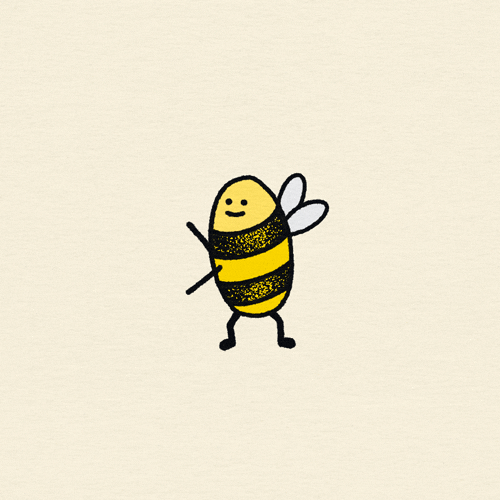What we can learn from bumblebees
Plus, get motivated
"Cultures of genius often miss out on identifying and recruiting people from diverse groups.”
— Psychologist Mary Murphy
BRAIN WAVES
There’s no “I” in bee. Bees are fascinating little creatures, and a new study has found that they’re also team players. Researchers wanted to see if bees could be socialized to work together. In one experiment, they trained bumblebees to walk down a tunnel toward a door. When the bees pushed on the door, they would get access to a delicious reward (nectar). Some bees were trained solo, and others were trained with a partner. The bees that trained with a partner were more likely to push only when their partner was pushing with them. Even more impressive, when their partner was delayed, the bees would turn around before they reached the door, then turn back around when they saw their partner headed in the right direction. “Our findings show for the first time that bumblebees can learn to solve novel cooperative tasks outside the hive,” said lead researcher Olli Loukola. “But the coolest part of this work is that it clearly demonstrates that bumblebee cooperation is socially influenced, and not just driven by individual efforts.”
Rewards. Motivation helps us stick to our goals, reach our potential, and develop new habits. And there are two basic types of motivation: intrinsic and extrinsic. Intrinsic motivation is the desire to do something because of the thing itself — like playing a game you enjoy. Extrinsic motivation is the desire to do something because of its outcome — like going for a jog with the knowledge that you'll enjoy a big slice of pizza after you're done. Perhaps unsurprisingly, intrinsic motivators are more effective, but as this TED-Ed video explains, it’s also true that extrinsic motivators can be distracting. If you’re trying to finish a college degree, for example, you might be tempted to add a reward to keep yourself on track (“If I finish this semester, then I’ll buy that new phone I wanted”). But this strategy could backfire and
Facing our fears. Fear is a normal and healthy response to things that may harm us. But fear can also hold us back from doing the things we want to do. Listen to learn more.
ON THE HIDDEN BRAIN PODCAST
Innovation 2.0: Multiplying the Growth Mindset: Have you ever been in a situation where you felt that people wrote you off? Maybe a teacher suggested you weren’t talented enough to take a certain class, or a boss implied that you didn’t have the smarts needed to handle a big project. In the latest in our “Innovation 2.0 series,” we talk with Mary Murphy, who studies what she calls “cultures of genius.” We’ll look at how these cultures can keep people and organizations from thriving, and how we can create environments that better foster our growth.
ON THE MY UNSUNG HERO PODCAST
Joy Diaz’s Story Growing up, Joy and her parents were dedicated to helping others. Then they received some life-changing help themselves.
Don’t forget to send us the story of your unsung hero! Record a voice memo on your phone and email it to myunsunghero@hiddenbrain.org.
MIND GAMES
Say my name, and I am no more. What am I?
LAST WEEK’S PUZZLE
When you stop to look, you can always see me. If you try to touch me, you can never feel me. Although you walk towards me, I remain the same distance from you. What am I?
Answer: The horizon
A MOMENT OF JOY
Inspired by our episode, Between Two Worlds, a listener wrote this song.
Have an idea for Hidden Brain? A story you want to share with us? Send an email to ideas@hiddenbrain.org. Listen to us on Spotify, Apple, Amazon Music or your favorite podcast platform.


